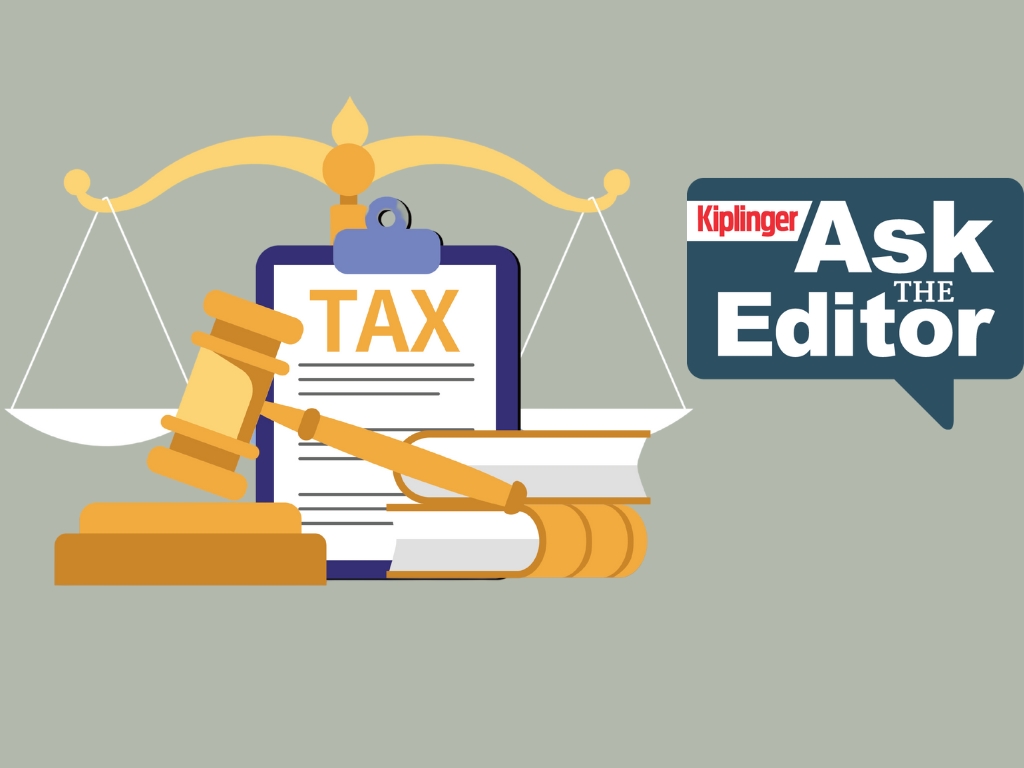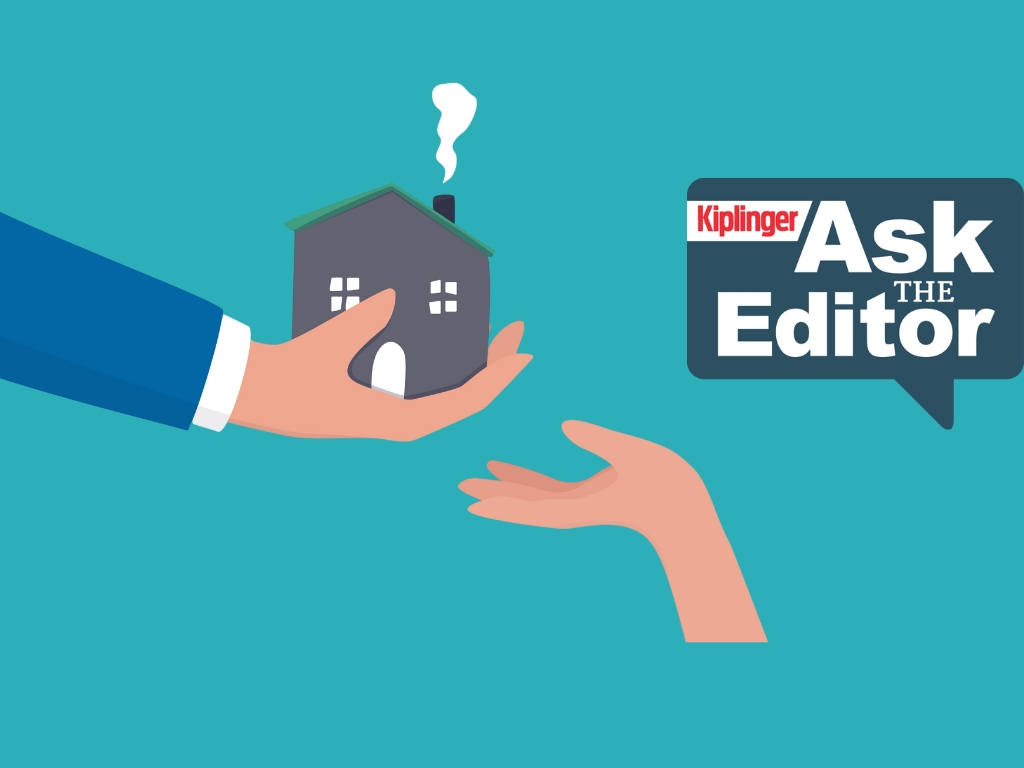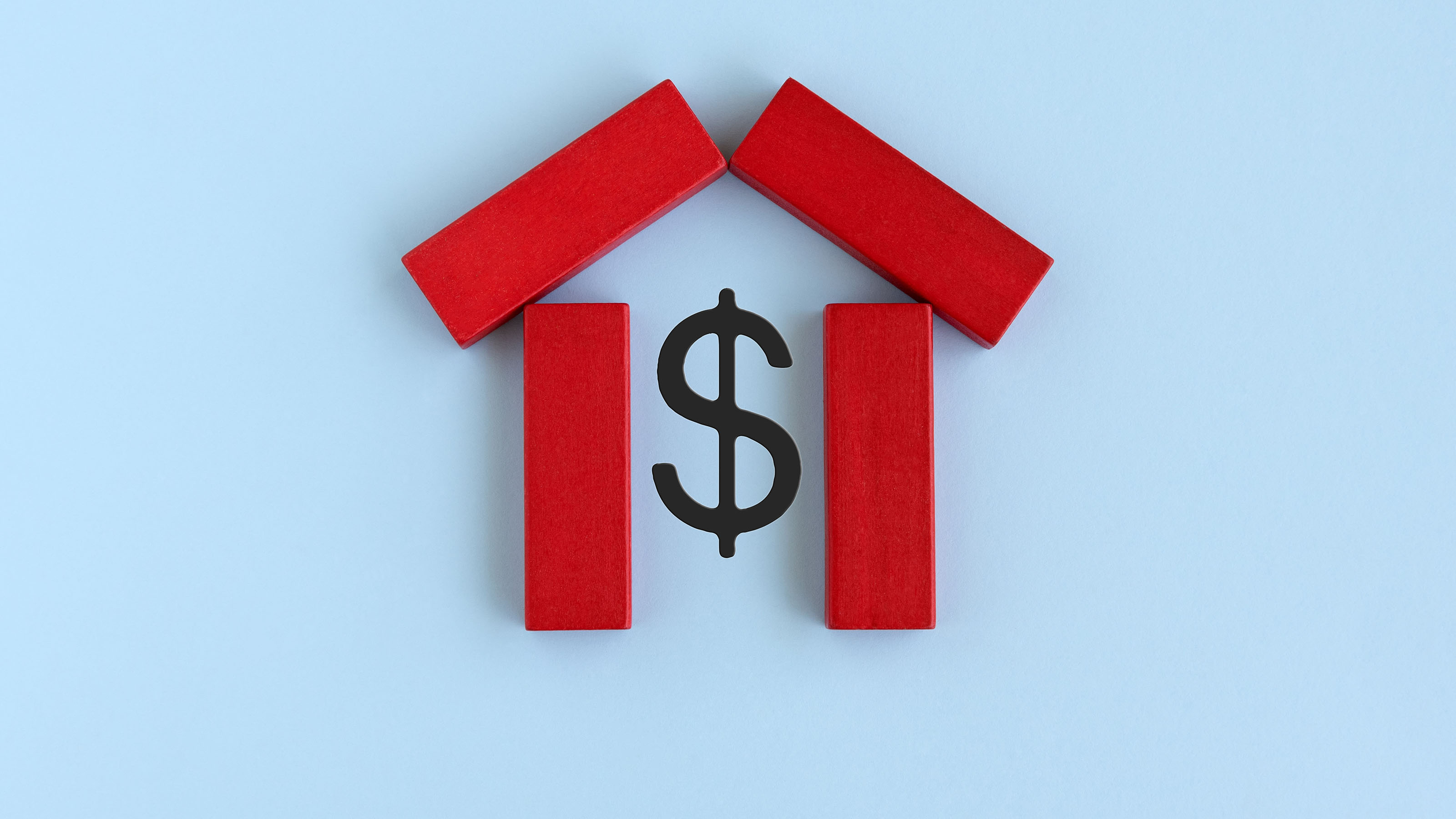Selling a Home After a Spouse's Death
You will be limited to $250,000 of tax-free profit, not the full $500,000 a couple would get.

Profit and prosper with the best of Kiplinger's advice on investing, taxes, retirement, personal finance and much more. Delivered daily. Enter your email in the box and click Sign Me Up.
You are now subscribed
Your newsletter sign-up was successful
Want to add more newsletters?

Delivered daily
Kiplinger Today
Profit and prosper with the best of Kiplinger's advice on investing, taxes, retirement, personal finance and much more delivered daily. Smart money moves start here.

Sent five days a week
Kiplinger A Step Ahead
Get practical help to make better financial decisions in your everyday life, from spending to savings on top deals.

Delivered daily
Kiplinger Closing Bell
Get today's biggest financial and investing headlines delivered to your inbox every day the U.S. stock market is open.

Sent twice a week
Kiplinger Adviser Intel
Financial pros across the country share best practices and fresh tactics to preserve and grow your wealth.

Delivered weekly
Kiplinger Tax Tips
Trim your federal and state tax bills with practical tax-planning and tax-cutting strategies.

Sent twice a week
Kiplinger Retirement Tips
Your twice-a-week guide to planning and enjoying a financially secure and richly rewarding retirement

Sent bimonthly.
Kiplinger Adviser Angle
Insights for advisers, wealth managers and other financial professionals.

Sent twice a week
Kiplinger Investing Weekly
Your twice-a-week roundup of promising stocks, funds, companies and industries you should consider, ones you should avoid, and why.

Sent weekly for six weeks
Kiplinger Invest for Retirement
Your step-by-step six-part series on how to invest for retirement, from devising a successful strategy to exactly which investments to choose.
My husband and I bought our house together in the 1980s. He died four years ago, and I'm now considering selling our house. Will my capital-gains exclusion be $250,000 because I file my taxes as a single now, or $500,000 because I originally bought the house with him? It seems unfair that I would have the smaller exclusion because he passed away.
Because you do file as a single taxpayer, you will be limited to $250,000 of tax-free profit when you sell the home. But the taxable gain may be smaller than you imagine because part or all of the profit that built up while your husband was alive will be ignored by the IRS.
When the owner of a home dies, the tax basis of the property -- the amount from which gain or loss is determined upon sale -- is "stepped up" to the date of death value. When a married couple owns a home jointly, at least half of the basis is stepped up (in community property states, the entire basis is stepped up).
From just $107.88 $24.99 for Kiplinger Personal Finance
Become a smarter, better informed investor. Subscribe from just $107.88 $24.99, plus get up to 4 Special Issues

Sign up for Kiplinger’s Free Newsletters
Profit and prosper with the best of expert advice on investing, taxes, retirement, personal finance and more - straight to your e-mail.
Profit and prosper with the best of expert advice - straight to your e-mail.
Here's an example of how it works, assuming you and your husband owned the home jointly in a state where half the basis was stepped up:
Assume you originally purchased the house for $50,000 (and didn't roll any profit from a previous home into the deal as was allowed under previous law). And, say the house was worth $150,000 when your husband died. The original $50,000 tax basis would be stepped up to $100,000 -- $25,000 (your share of the original $50,000) plus $75,000, which represents half of the home's value at the time your husband died.
If you get $250,000 or less when you sell (after paying selling expenses), you'd owe no tax because the entire $250,000 profit would be covered by your exclusion.
You can lower your tax bill even further by adding the cost of major home improvements and closing costs to your basis. For more information, see Taxes on Home-Sale Profits and IRS Publication 523 Selling Your Home.
Profit and prosper with the best of Kiplinger's advice on investing, taxes, retirement, personal finance and much more. Delivered daily. Enter your email in the box and click Sign Me Up.

As the "Ask Kim" columnist for Kiplinger's Personal Finance, Lankford receives hundreds of personal finance questions from readers every month. She is the author of Rescue Your Financial Life (McGraw-Hill, 2003), The Insurance Maze: How You Can Save Money on Insurance -- and Still Get the Coverage You Need (Kaplan, 2006), Kiplinger's Ask Kim for Money Smart Solutions (Kaplan, 2007) and The Kiplinger/BBB Personal Finance Guide for Military Families. She is frequently featured as a financial expert on television and radio, including NBC's Today Show, CNN, CNBC and National Public Radio.
-
 4 Estate Planning Documents Every High-Net-Worth Family Needs
4 Estate Planning Documents Every High-Net-Worth Family NeedsThe key to successful estate planning for HNW families isn't just drafting these four documents, but ensuring they're current and immediately accessible.
-
 Love and Legacy: What Couples Rarely Talk About (But Should)
Love and Legacy: What Couples Rarely Talk About (But Should)Couples who talk openly about finances, including estate planning, are more likely to head into retirement joyfully. How can you get the conversation going?
-
 How to Get the Fair Value for Your Shares in This Situation
How to Get the Fair Value for Your Shares in This SituationWhen a sale of substantially all corporate assets is approved by majority vote, shareholders on the losing side of the vote should understand their rights.
-
 Ask the Editor, June 13: Questions on Home Sales and Taxes
Ask the Editor, June 13: Questions on Home Sales and TaxesAsk the Editor In our latest Ask the Editor round-up, Joy Taylor, The Kiplinger Tax Letter Editor, answers questions on home sales and calculating tax basis in a home.
-
 Ask the Editor, May 30: Questions on the One Big Beautiful Bill
Ask the Editor, May 30: Questions on the One Big Beautiful BillAsk the Editor In this week's Ask the Editor Q&A, we answer tax questions from readers on the House-passed “One Big Beautiful Bill.”
-
 Ask the Editor, May 23: Reader Questions on Gifts, Estate Tax
Ask the Editor, May 23: Reader Questions on Gifts, Estate TaxIn this week's Ask the Editor Q&A, we answer tax questions from readers on gifts, the estate tax and stepped-up basis upon death.
-
 Ask the Editor, May 16 — Reader Questions on Capital Gains
Ask the Editor, May 16 — Reader Questions on Capital GainsIn our latest Ask the Editor round-up, Joy Taylor, The Kiplinger Tax Letter Editor, answers three questions from readers on capital gains.
-
 IRS Solar Tax Credit Payouts Soar as Scams Target Homeowners
IRS Solar Tax Credit Payouts Soar as Scams Target HomeownersClean Energy Clean energy tax credits are paying off for many, but experts warn of increasing scams.
-
 Property Tax 101: What Homeowners Need to Know
Property Tax 101: What Homeowners Need to KnowProperty Tax No one likes to pay property tax, but knowing how these taxes work might make the situation more bearable.
-
 The 1031 Exchange Rules You Need to Know
The 1031 Exchange Rules You Need to KnowTaxes are an inevitable part of real estate investing. You can, however, defer or avoid paying capital gains taxes by following some simple 1031 exchange rules.
-
 Are Capital Gains Taxes Keeping You From Selling Property?
Are Capital Gains Taxes Keeping You From Selling Property?A structured installment sale could help defer or reduce long-term capital gains when you sell real estate.